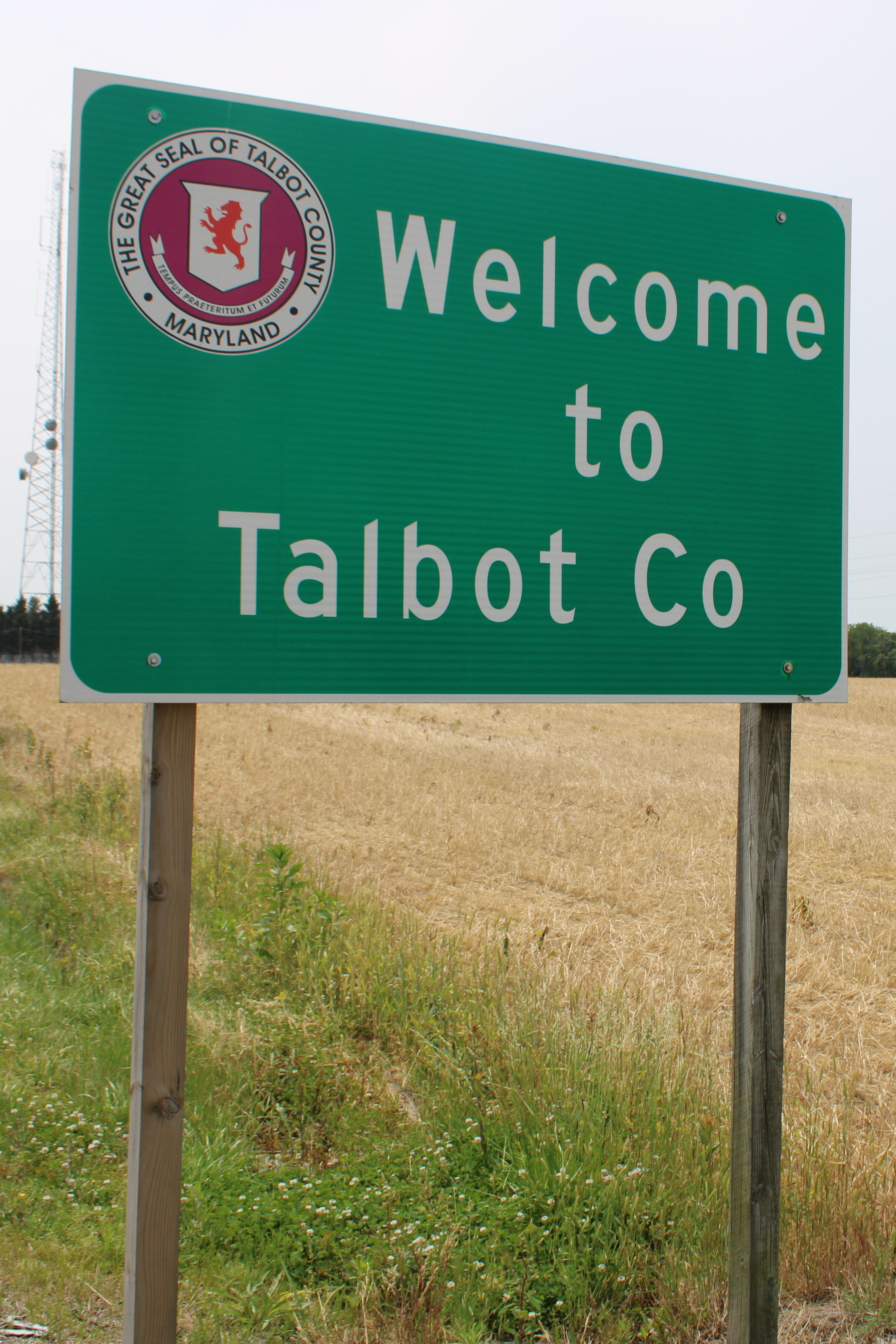
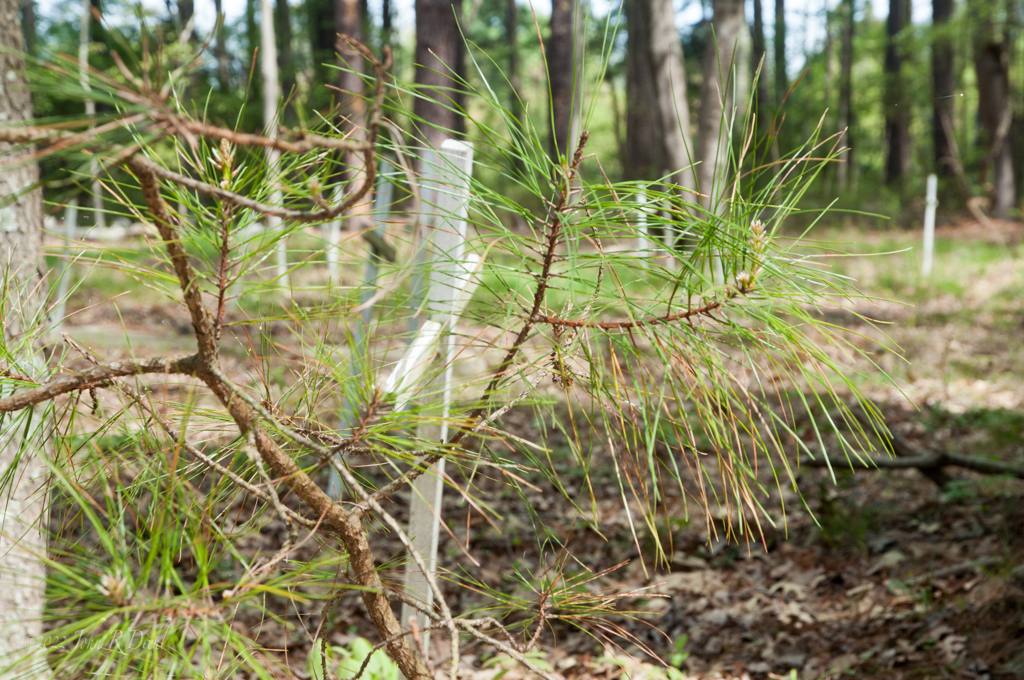
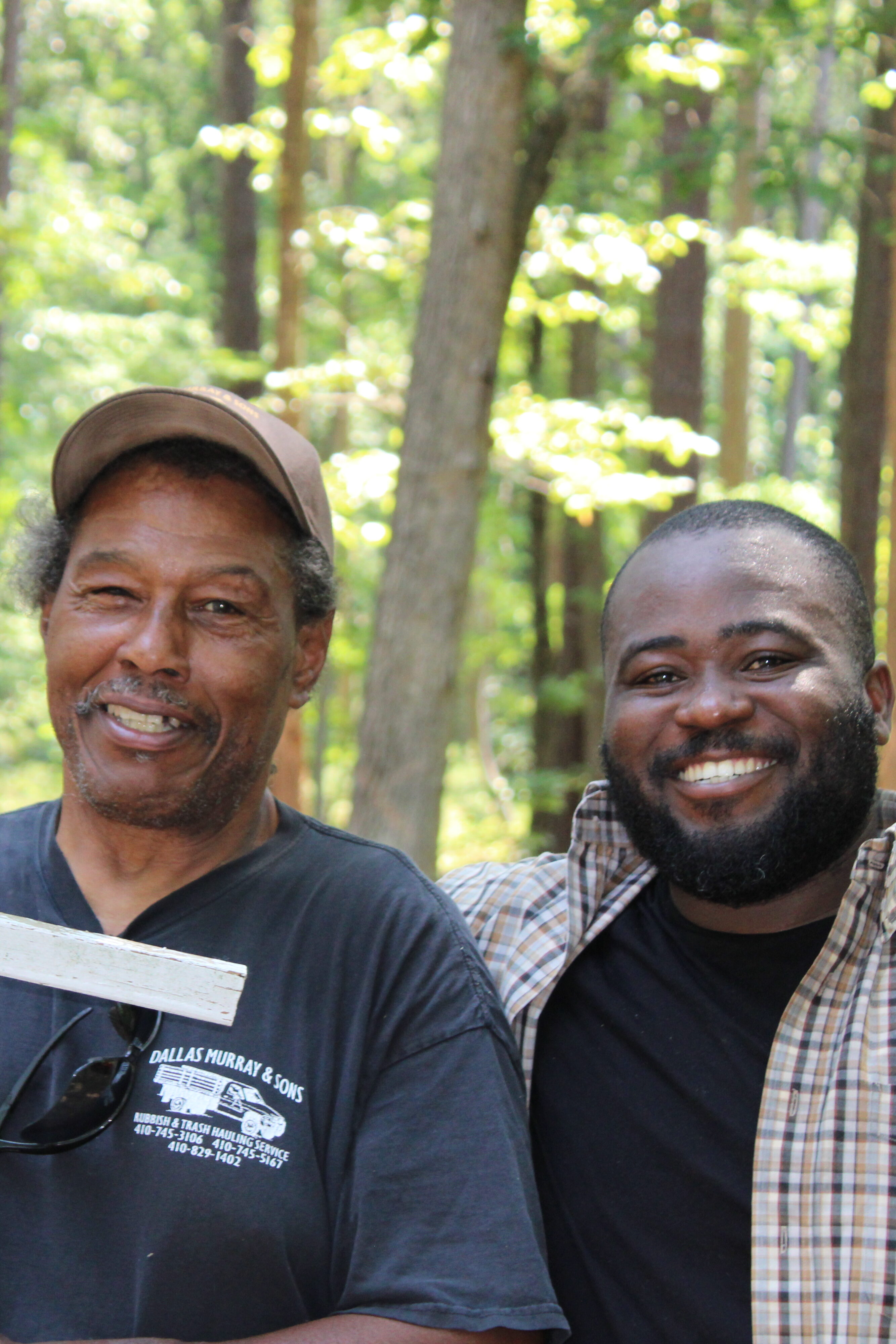
Eastern Shore
Talbot County, a rural community along the coastal shorelines of the Chesapeake Bay, is historically significant because the United States battles of independence were fought along its waterways and both Frederick Douglass and Harriet Tubman sought their liberation in this area. Within this county, Blacks and Whites, enslaved, indentured and freed men have coexisted for 400 years (since 1619), jointly participating in farming, religious and fishing activities, albeit from differing social locations. The communities who occupy this area of Maryland exchange folk histories at social events such as barbecues and bible study sessions, at farmer’s markets and while hunting and fishing.
The project considers how expressive culture models freedom and community reconciliation. Folk expressions constitute a local history made possible by cohabitation in this coastal setting. The research demonstrates how vernacular culture and religion contribute to ever-evolving social relationships between members of the multi-racial, rural working class. Research on the Eastern Shore of Maryland highlights intangible cultural heritage of African American communities and investigates how resiliency persists. We use a matrix of methodologies to illustrate how complex histories translate into pathways for expressing freedom and cultural heritage. Mapping, oral histories, spatial geography, archival ownership documents, and census data merge to demonstrate how labor, self-sufficiency, religious beliefs and cultural folkways have shaped a local site deeply steeped in United States history.
Walter Black
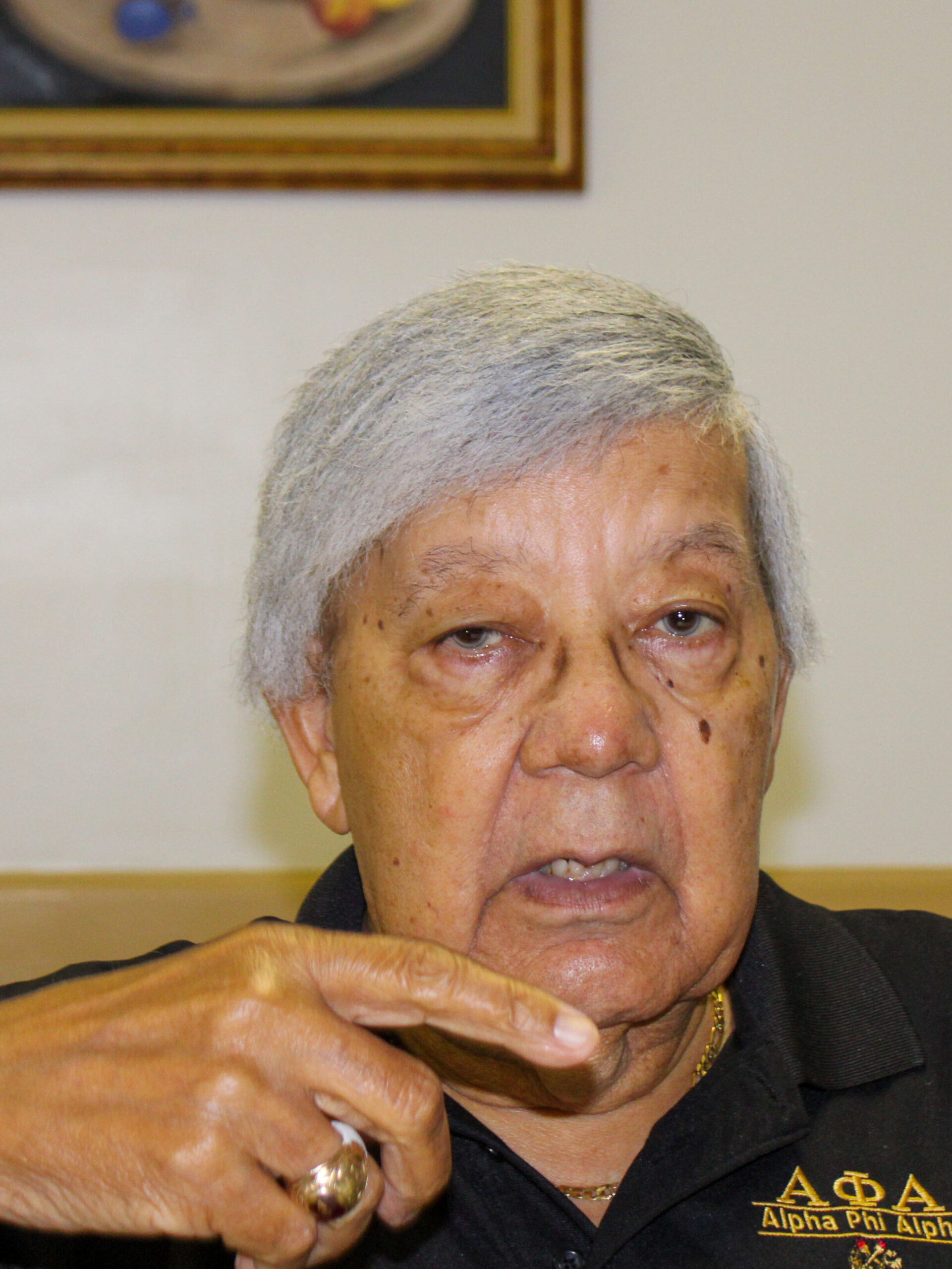
Specialty/Key Words: Eastern Shore, Civil Rights, NAACP, Talbot County, Justice, Legacy, Tradition, Food
Interview Summary: Walter Black, born in Salisbury, Maryland, is a key figure in the civil rights movement, particularly known for his role in the 1962 Riverside Park Pool protest in Baltimore. Raised in McDaniel, Maryland, he became actively involved in the desegregation efforts as the executive director of the Maryland State Conference of the NAACP. In 1962, Mr. Black played a pivotal role in the desegregation of public spaces, specifically the Riverside Park Pool in Baltimore. He recounted the events surrounding a protest at the pool after a group of Black children, including an 11-year-old Elijah Cummings, were denied entry to a public pool that had been ordered to desegregate by a 1955 federal court decision. Mr. Black and a group of youth council members marched to the pool, facing intense opposition from a hostile white mob. Although initially urged to leave for safety reasons, Mr. Black and the group remained committed to their cause, ultimately retreating for safety concerns for the children when a young Elijah Cummings was injured by a thrown rock. During the interview, Mr. Black recounted his experiences advocating for equal rights, including organizing protests against racial segregation in public spaces. He emphasized the importance of staying true to one’s convictions and staying engaged in the fight for justice, particularly in education and housing. He also reflected on the ongoing need to preserve and share stories from the civil rights movement to inspire future generations.
Select Audio Clip:
Carroll Cooper
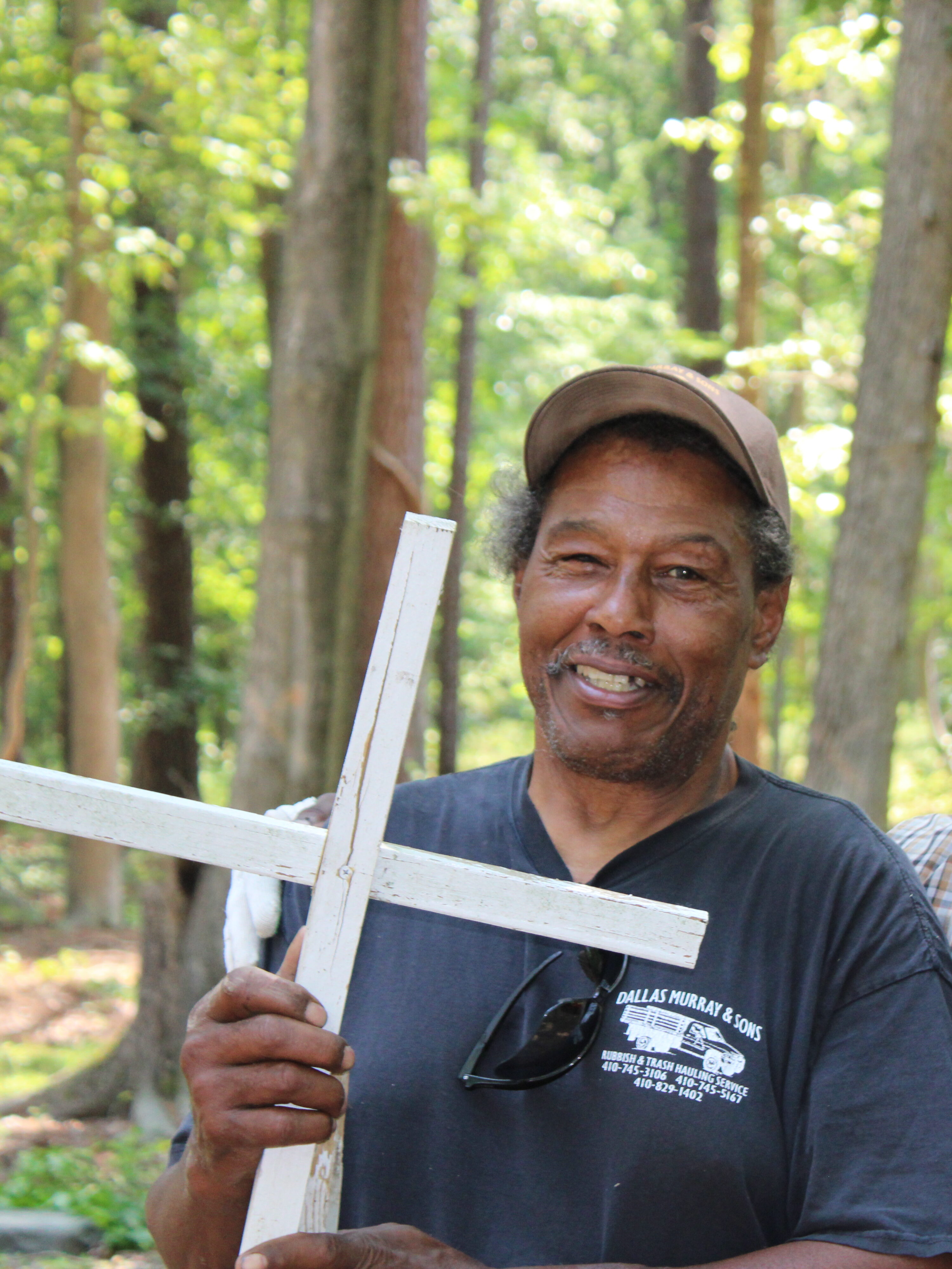
Specialty/Key Words: Eastern Shore, Family, Slavery, Emancipation, Agriculture, Seafood, Hunting, Legacy, Land, Tradition, Harvesting, Farming, Tradition, Community
Interview Summary: Carroll Cooper, born and raised in the Wittman area on Maryland’s Eastern Shore, shared stories about his family’s rich history, dating back to the Civil War and slavery. His great-great-grandmother, who was enslaved, famously walked 27 miles to Easton to verify that slavery had ended. Carroll’s ancestors worked on nearby plantations and were linked to historical figures like Harriet Tubman and Fredrick Douglas. His family later acquired land, at the height of his family’s land ownership they acquired 80 acres.
Mr. Cooper’s family grew tomatoes, collard greens, kale, watercress and other vegetables and operated a successful produce stand and participated in the local seafood industry. He fondly remembered family meals, especially his grandmother’s green bean soup. The interview also highlights the role of hunting and farming in the family’s lifestyle, including raising pigs and processing meat, an activity that brought the community together. Mr. Cooper explains how his family’s involvement in the pig farming process included making scrapple and other dishes, using every part of the animal. His family was also active in deer hunting, and community members worked together to process the meat. This communal way of life was central to his upbringing and his family’s legacy on the Eastern Shore.
Select Audio Clip:
Charles Warner, Nathaniel Trott, & Dwight Henry
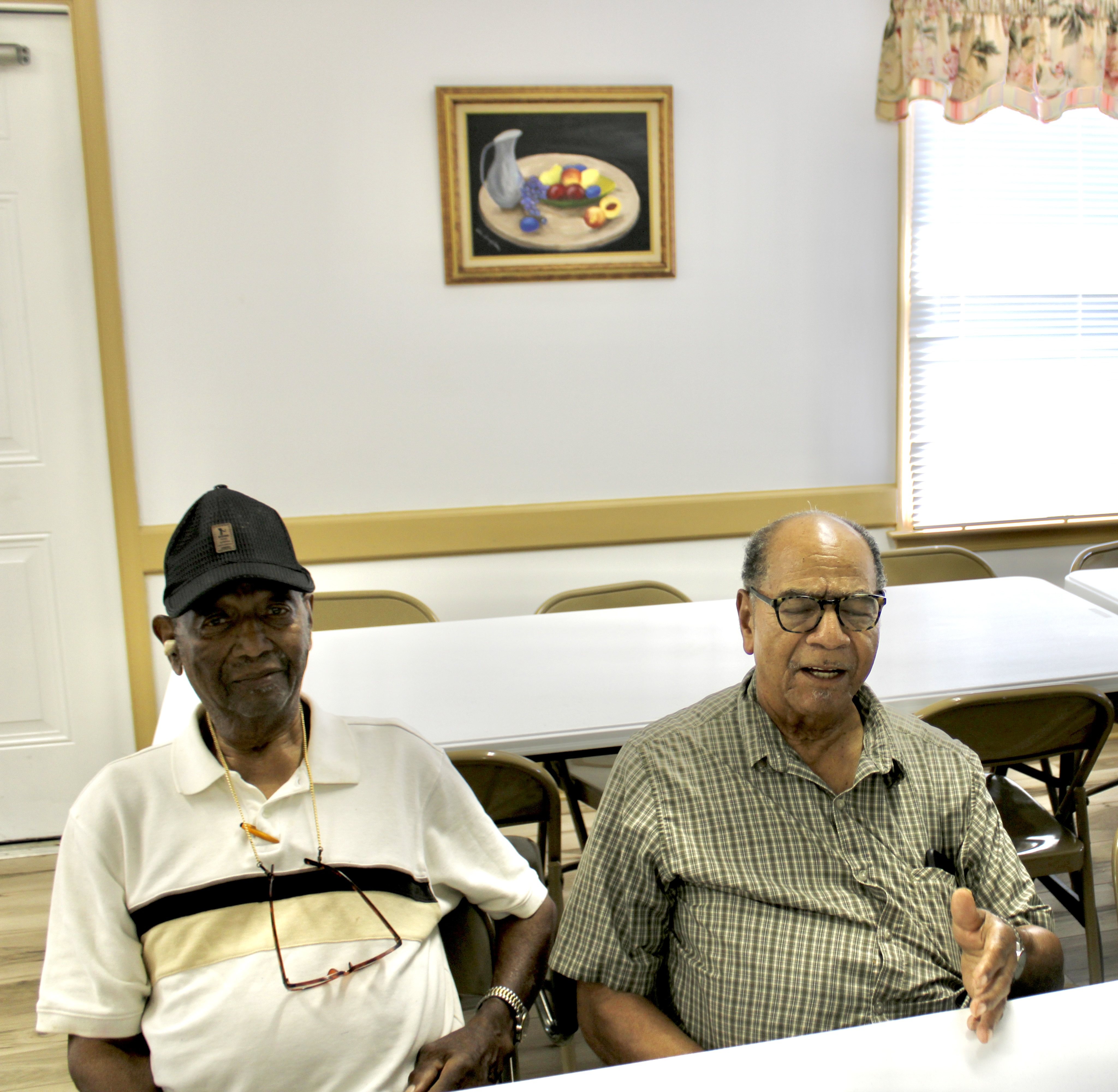
Specialty/Key Words: Eastern Shore, History, Community, Family, Legacy, Tradition, Culture, Segregation, Civil Rights, Integration
Interview Summary: Nathaniel Trott, Charles Warner, and Dwight Henry shared their experiences growing up and reflecting on their community’s history. They discuss the legacy of segregation and integration, the schools they grew up attending together. Nathaniel reflected on his time as a saxophonist, recalling performances like playing the national anthem at school events. Charles also shared stories of running cross-country, where local athletes had the advantage of knowing the tracks well. The group concluded by discussing their family connections, which, while not by blood, were strengthened through marriages and shared community ties.
Nathaniel Trott
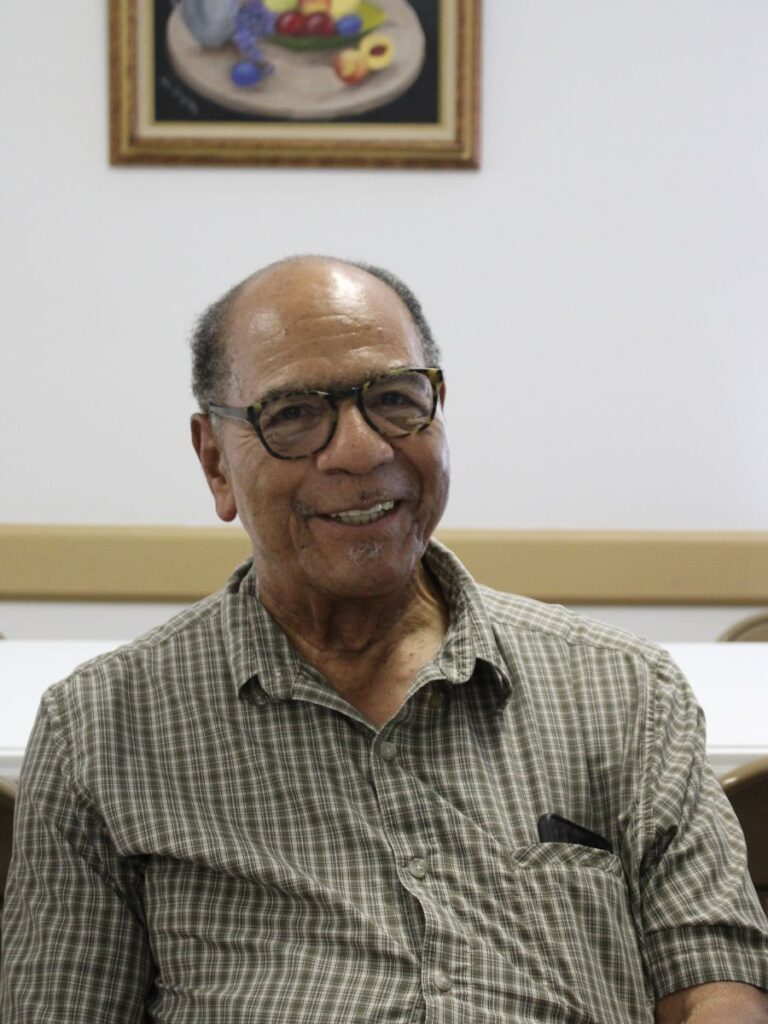
Specialty/Key Words: Eastern Shore, Community, Self-sufficiency, Food preservation, Canning, Family, Gardening, Tradition, Simplicity, Agriculture, Farming, Legacy
Interview Summary: Nathaniel Trott, born and raised in McDaniel Maryland where he now lives again, shared insights about life growing up in a time of self-sufficiency and tight-knit family bonds. The interview highlights food preservation techniques such as canning sausages and curing pig feet, as well as the practice of storing potatoes in the ground to survive the winter. Nathaniel recalled his family’s deep connection to farming, growing food like kale and sweet potatoes, and making their own bread and butter. Community was a vital part of life, with neighbors helping each other with tasks like slaughtering hogs and sharing meals. Despite the hardships of living without modern amenities, such as running water or electricity, Mr. Trott fondly remembered the simpler times. He also spoke of the importance of family, emphasizing how families supported one another and the wider community, touching also on the role of traditional foods and fishing. Nathaniel remembered times spent gathering shellfish, fish and wild asparagus.
Select Audio Clip:
Virginia Jackson & Walter Black
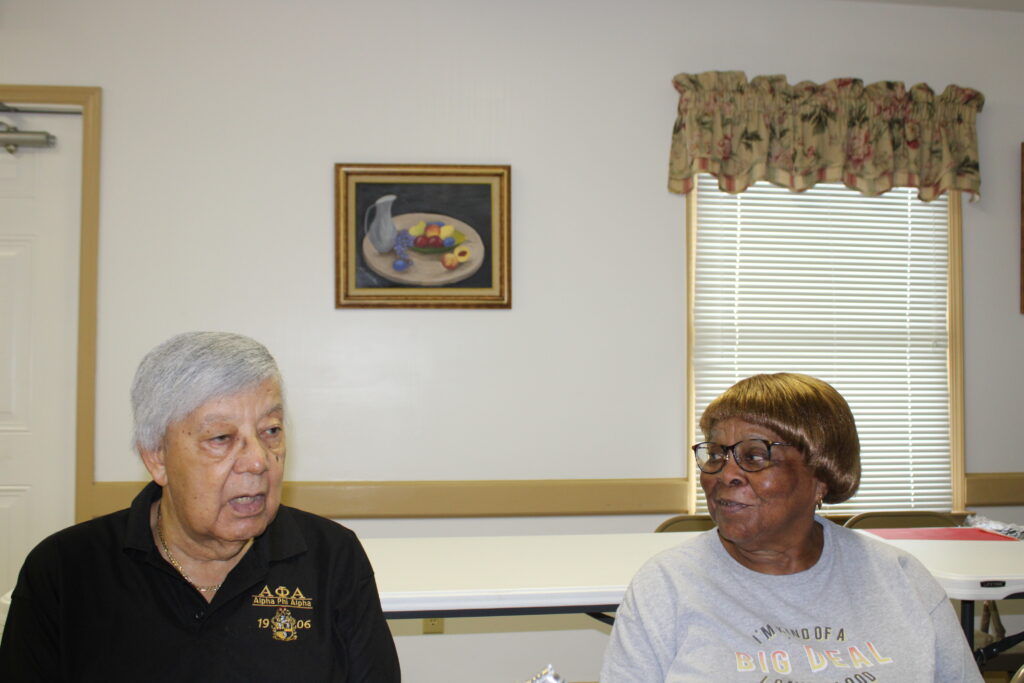
Specialty/Key Words: Eastern Shore, Heritage, Community, Family, Climate, Agriculture, Farming, Segregation, Resilience, Culture, Labor, Elders
Interview Summary: Walter Black and Virginia Jackson shared personal stories about growing up in a close-knit community, reflecting on their family history, and discussing identity and the complexities of heritage. The conversation also touched on Hurricane Hazel, where Virginia recalled the impact of the storm, noting that while it caused some damage, the community came together to help with the recovery process. Walter shared his childhood experiences working on farms, recalling how he picked tomatoes for 50 cents a basket and worked long hours in difficult conditions. Virginia also worked in crab houses, emphasizing the hard labor and the sense of teamwork that defined their lives. Both speakers highlighted how the community would come together for events, where people from different backgrounds would gather, reinforcing a sense of respect and unity among everyone. Their reflections underscored the importance of elders in shaping their values, hard work, and community spirit.
Select Audio Clip:
Leonard Palmer
Specialty/Key Words: Eastern Shore, Waterman, Farming, Well Driller, Crabbing, Family, Religion, Church, Community, Carpentry, Environment, History, Tradition
Interview Summary: Leonard Palmer, born and raised on the Eastern Shore of Maryland, worked in various fields throughout his life, including as a waterman, farmer, and well driller. He began his career at a young age, helping with farming, crabbing, and building his family’s house. Later, he worked as a well driller for over 50 years, becoming the first Black licensed well driller in the region. Leonard recalled his schooling at Moton High School in Easton, his experiences with Hurricane Hazel, and his work on local farms. He also shared stories about his family, including his two marriages and children. His account offers a unique perspective on life in rural Eastern Shore Maryland, highlighting the challenges, hard work, and strong community connections that shaped his life.
“That job was a hard work, and buddy, let me tell you, there was a lot of hand digging to do. Hand digging. I mean, when the ground was in the summer, when the ground was hard, the job had to go, keep on going. You had picks and shovels and stuff. That was one of your major tools to work with. So when I started working, I worked under a driller. I was just a helper. And when I learned how to drill wells, the owner made me take a test over Annapolis and get my license. So anyhow, finally I got test done in one time. It only took me one time to get my license, and so that was luck. Thank the Lord for that. Then after that, I went on and start drilling wells by myself, and it lasted altogether. It lasted about 50 years.”
Charles Warner
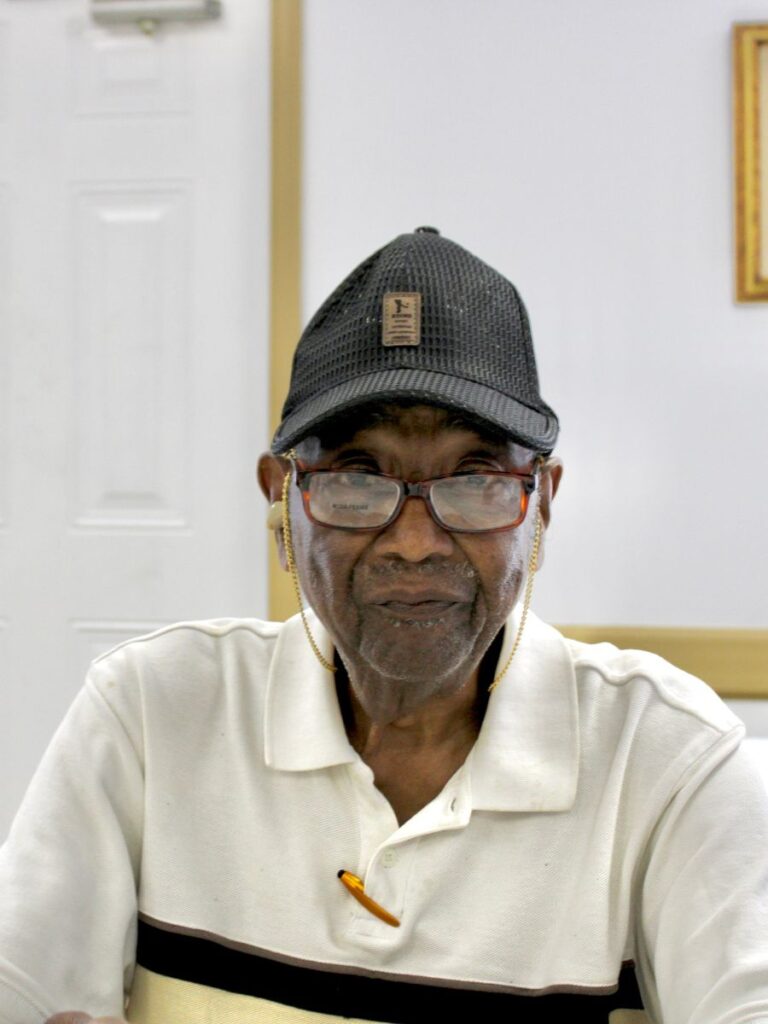
Specialty/Key Words: Eastern Shore, Family, Community, Work Ethic, Church, Religion, Legacy, Farming, Faith, Agriculture, Traditions, Spirituality
Interview Summary: Charles Warner, a lifelong resident of Wittman Maryland, reflects on a life deeply rooted in family, hard work, and community. He worked on a farm in McDaniel from a very young age, around 8 or 9 with his grandfather and father. He shared fond memories of Sunday family breakfasts and the influence of his grandparents, particularly his grandfather’s love for his bicycle and that he bought his own bicycle as a kid with his earnings from the farm. Charles worked various jobs, including as a busboy, waiter, and later in retail, to put himself through high school. After spending some time in Baltimore, he returned to Wittman, where he continued working in hardware stores, furniture delivery, and medical transportation. Throughout the interview, Charles discussed his involvement with local churches, his family’s role in the cemetery restoration project, and the emotional impact of the cemetery’s vandalism. Offering advice to younger generations, Charles emphasized the importance of making good choices, staying true to oneself, and guiding youth toward the right path.
Select Audio Clip:
Childlene Brooks & Virginia Jackson
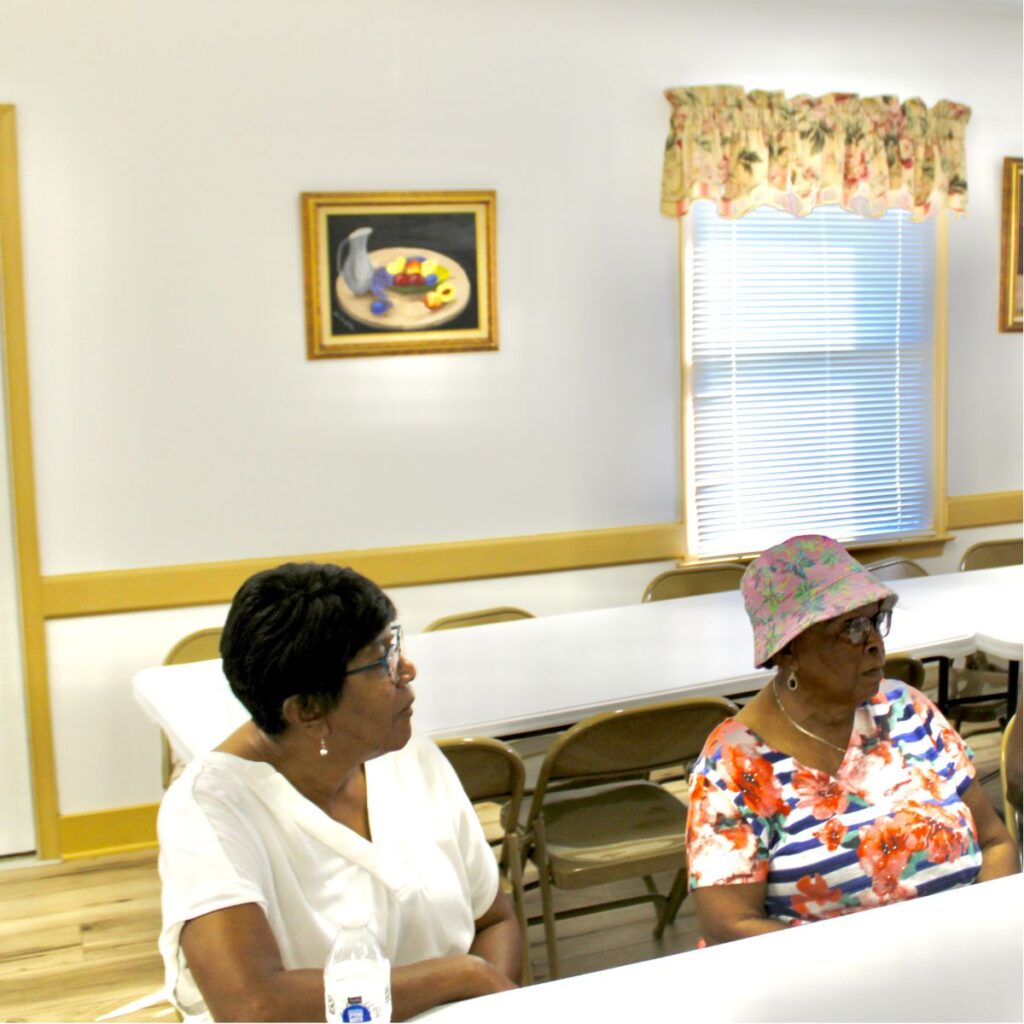
Specialty/Key Words: Eastern Shore, Community, Family, History, Preservation, Seafood, Legacy, Culture, Segregation, Civil Rights
Interview Summary: Interview Summary: Childlene Brooks and Virginia Jackson, sisters raised in Talbot county and deeply rooted in their community, shared their personal stories of growing up during the desegregation era and their involvement in local civil rights efforts. The interview explored their early experiences at St. Michael’s High School, where Childlene was one of the first African American students to integrate the school in 1968. Childlene reflected on her mother’s strong decision to participate in desegregation, even when it meant leaving their friends behind. Despite the challenges, Childlene had minimal negative experiences with peers or teachers, and both sisters spoke about the resilience of their community during this pivotal time. The conversation also touched on the efforts to preserve local history and culture, especially through the restoration of the Asbury and Green Chappel cemetery. Both women emphasized the importance of community support in these initiatives, noting that much of the work was done by volunteers. They recalled attending church services at the chappel, where the community gathered in fellowship, often sharing good food and a sense of unity. Virginia and Childlene also discussed the impact of forced busing during the desegregation of schools, which led to students being sent far from home to attend school. Through their stories, the sisters highlighted the enduring strength of their community, their shared experiences, and their ongoing work to preserve the history and culture of their area.
Dwight Henry & Nathaniel Trott
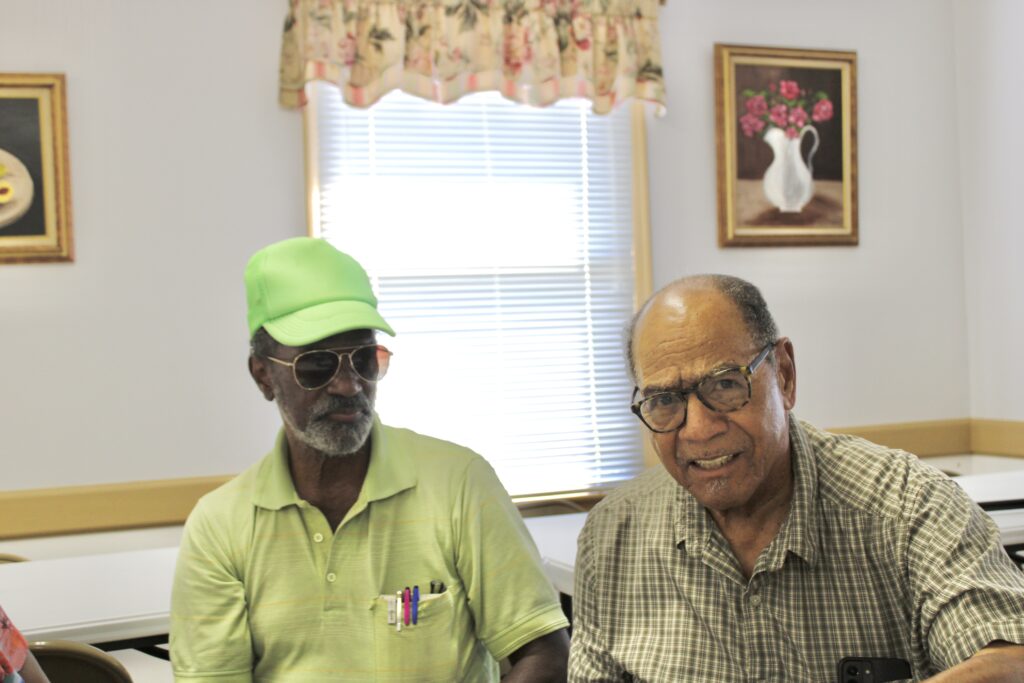
Specialty/Key Words: Eastern Shore, Community, Church, Traditions, Respect, Generational differences, History and heritage, Resilience, Rural, Agriculture, Farming, Land,Family, Legacy, Segregation
Interview Summary: Mr. Cooper’s family grew tomatoes, collard greens, kale, watercress and other vegetables and operated a successful produce stand and participated in the local seafood industry. He fondly remembered family meals, especially his grandmother’s green bean soup. The interview also highlights the role of hunting and farming in the family’s lifestyle, including raising pigs and processing meat, an activity that brought the community together. Mr. Cooper explains how his family’s involvement in the pig farming process included making scrapple and other dishes, using every part of the animal. His family was also active in deer hunting, and community members worked together to process the meat. This communal way of life was central to his upbringing and his family’s legacy on the Eastern Shore.